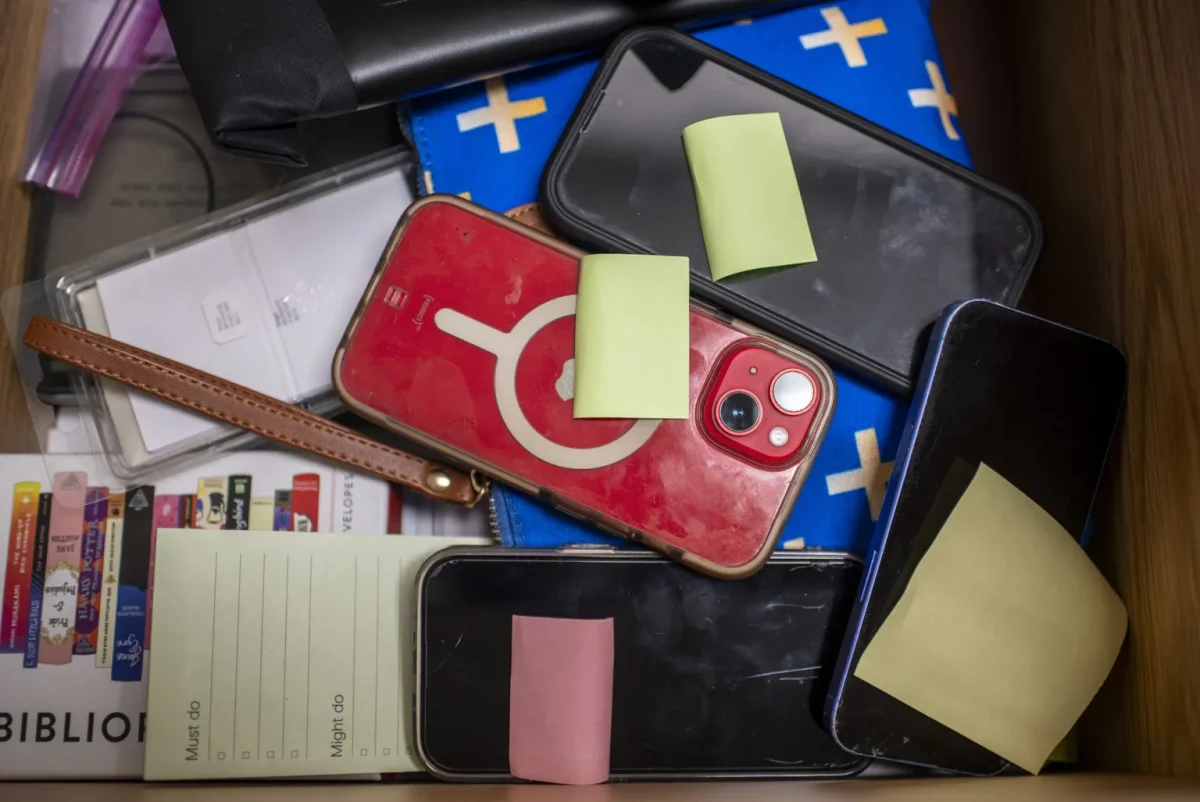In June of this year, House Bill 4181, or more commonly, the Phone Ban, because it completely forbids personal devices during the entire school day, was passed, sending students into a panic. But this ban is actually not a bad thing.
Actually, the ban is not only good, it’s great. It opens up doors for communication and connection that previously were closed, courtesy of phone addictions. There’s a reason why “doom scrolling” is a common term. Oftentimes, students spend their days glued to their phones or other devices, formulating relationships with online characters, instead of creating and nurturing their real relationships.
However, parents and students claim that no law is perfect, and the ban has some clear drawbacks. According to Texas Monthly, only 36% of parents support an all-day ban, and, in the minds of the parents, it’s for good reason, too. Students aren’t able to contact their parents during the day, causing parents to worry about whether their child needs help or not. This truth is, they’re at school, surrounded by people who have sworn to protect them. Your child is probably going to be ok.
But parents also worry that they might not be able to contact their child if they have an emergency. But if they need to do this, they can contact the front office, and the lovely people there can easily get their message to their dear child.
So aside from the “drawbacks” of the bill, there are also lots of advantages to be had with a law like this. Among these is the overwhelming success students have in their classes in the absence of personal devices. In fact, 68% of the same parents who don’t support a full-day ban support an in-class ban. This is because parents realize that while they do have some reservations about taking phones away completely, the use of phones during class harms their child’s learning. Take away the phones, and their grade goes up. Students become more engaged and have improved focus in class.
But as well as not allowing students to snap their friends during class, they should also not be allowed to do so during passing periods or lunch, either. This is where the law lost 32% of its supporters, because now parents are worrying about their child. But the time between classes and at lunch is when the most social interaction takes place. Getting good grades is one thing, but actually building human connections is quite another and just as important. So, it’s just as vital for students to not have access to personal devices during lunch and passing periods as during class.
So while parents and students have their own concerns about the bill (which are exaggerated and dramatic), overall, the law stands to be a step in the right direction for the future of our generation and the preservation of human relationships.




![[Editorial] Passing periods should remain at 5 minutes](https://cardinalconnection.net/wp-content/uploads/2024/04/hall2-1200x800.jpg)
![[Editorial] College should be free](https://cardinalconnection.net/wp-content/uploads/2023/04/CmuoaVEfRF5xzyP8h3ZQxbJaTGNNsOsfwpABcZar-900x600.jpg)
![[Editorial] Daylight Savings Time should be cancelled](https://cardinalconnection.net/wp-content/uploads/2023/04/MVd6I3o7DT2sN5yBnZkWaHKjB8JGvA2moI2wrTYz.jpg)
![[Editorial] Schools should move to 4-day instructional weeks](https://cardinalconnection.net/wp-content/uploads/2023/03/D2vfZ1EIgHN62Q9W8PzMxRL0MmlnDEjwrYucXRMZ-900x450.webp)
![[Editorials] Schools should shift to 4-day weeks](https://cardinalconnection.net/wp-content/uploads/2023/03/ySwwZj5HJpqPw0VrHH50zCxuQRSbpmL138cxKoS2-900x600.jpg)
![[Editorial] Schools should adopt 4-day weeks](https://cardinalconnection.net/wp-content/uploads/2023/03/AD7D5g0dMCUlXzAOwnWriEiN4aApN66ngN1co1yH-900x600.jpg)
